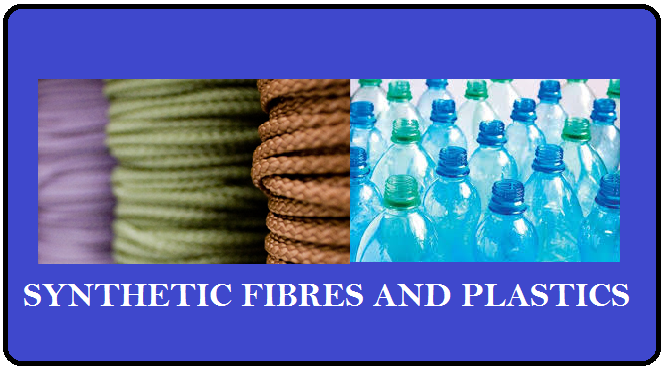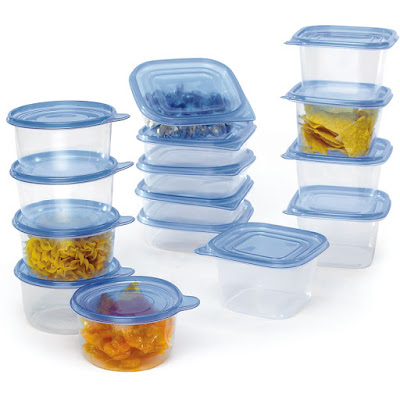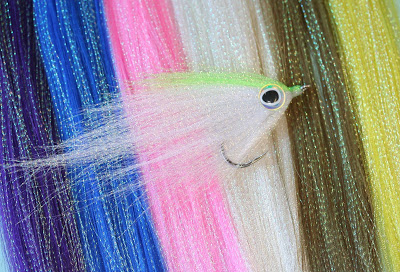
Exercise
1) Explain why some fibres are called synthetic.
ANSWER:-There are some fibres that are prepared by man by using chemicals.
These are called synthetic fibres.
These are called synthetic fibres.
2) Mark the correct answer
Rayon is different from synthetic fibres because
(a) it has a silk-like appearance.
(b) it is obtained from wood pulp.
(c) its fibres can also be woven like those of natural fibres.
ANSWER:- b)
3) Fill in the blanks with appropriate words.
(a) Synthetic fibres are also called
__artificial__ or __man-made__ fibres.
__artificial__ or __man-made__ fibres.
(b) Synthetic fibres are synthesised
from raw materials called __petrochemicals__.
from raw materials called __petrochemicals__.
(c) Like synthetic fibres, plastic is
also a __polymer__.
also a __polymer__.
4) Give examples
which indicate that nylon fibres are very strong.
which indicate that nylon fibres are very strong.
ANSWER:-Nylon fibres are very strong. It is used for making ropes used for
climbing rocks and for making
parachutes. Their usage shows that nylon fibres have high tensile strength.
climbing rocks and for making
parachutes. Their usage shows that nylon fibres have high tensile strength.
5) Explain why
plastic containers are favoured for storing food.
plastic containers are favoured for storing food.
ANSWER:-Plastic containers are favoured for storing food because of its
light weight, lower price and good strength.
light weight, lower price and good strength.
6) Explain the
difference between thermoplastic and thermosetting plastics.
difference between thermoplastic and thermosetting plastics.
ANSWER:-
Thermosetting plastic-:
Thermosetting plastic cannot be bent easily. It may break when
forced to bend.
forced to bend.
Thermosetting plastic cannot be softened by heating. Thus, it
cannot be reshaped once moulded.
cannot be reshaped once moulded.

Thermoplastic:-
Thermoplastic can be bent easily.
Thermoplastic can be softened easily by heating. Thus, it can be
reshaped.
reshaped.
7) Explain why the
following are made of thermosetting plastics.
following are made of thermosetting plastics.
(a) Saucepan handles
(b) Electric
plugs/switches/plug boards
plugs/switches/plug boards
ANSWER 🙁 a) Saucepan handles are made of thermosetting
plastics because these plastics do not get softened
on heating. Also, thermosetting plastics such as Bakelite are poor conductors
of heat.
plastics because these plastics do not get softened
on heating. Also, thermosetting plastics such as Bakelite are poor conductors
of heat.
(b) Thermosetting plastics such as Bakelite are poor conductors of
heat and electricity. Therefore, they are used for making electric
plugs, switches, plug boards, etc.
heat and electricity. Therefore, they are used for making electric
plugs, switches, plug boards, etc.
8) Categorize the
materials of the following products into ‘can be recycled’ and ‘cannot be recycled’.
Telephone instruments, plastic toys, cooker handles, carry bags, ball point
pens, plastic bowls, plastic covering on electrical wires, plastic chairs,
electrical switches.
materials of the following products into ‘can be recycled’ and ‘cannot be recycled’.
Telephone instruments, plastic toys, cooker handles, carry bags, ball point
pens, plastic bowls, plastic covering on electrical wires, plastic chairs,
electrical switches.
ANSWER:-Cannot be recycled:-Telephone instruments, Cooker handles,
Electrical switches.
Electrical switches.
Can be recycled:-Plastic toys, Plastic chairs, carry bags, Plastic
covering on electrical wires, Ball
point pens, plastic bowls.
covering on electrical wires, Ball
point pens, plastic bowls.
9)Rana wants to buy
shirts for summer. Should he buy cotton shirts or shirts made from synthetic
material? Advise Rana, giving your reason.
shirts for summer. Should he buy cotton shirts or shirts made from synthetic
material? Advise Rana, giving your reason.
ANSWER:-Rana should buy shirts made from cotton. This is
because cotton is a good absorber of water. It can
soak the sweat coming out of our body and expose it to the environment. Thus,
it helps in evaporating the liquid (sweat), thereby cooling our body.
because cotton is a good absorber of water. It can
soak the sweat coming out of our body and expose it to the environment. Thus,
it helps in evaporating the liquid (sweat), thereby cooling our body.
10) Give examples to show that plastics are non- corrosive in
nature.
nature.
ANSWER:- Cleansing chemicals that we use at home are stored in plastic
bottles, instead of metal container.
bottles, instead of metal container.
11) Should the handle
and bristles of a tooth brush be made of the same material? Explain your
answer.
and bristles of a tooth brush be made of the same material? Explain your
answer.
ANSWER:-No. The handle and bristles of a tooth brush should be made of
different materials. The handle of a toothbrush should be hard and strong,
while the bristles should be soft and flexible.
different materials. The handle of a toothbrush should be hard and strong,
while the bristles should be soft and flexible.
12) ‘Avoid plastics
as far as possible’. Comment on this advice.
as far as possible’. Comment on this advice.
ANSWER:-Plastics are non-biodegradable. Once introduced into the
environment, they take several years to decompose. Plastics add to the environmental pollution.
They cannot be burnt as when burnt, they
release poisonous gases. Therefore plastics should be avoided.
environment, they take several years to decompose. Plastics add to the environmental pollution.
They cannot be burnt as when burnt, they
release poisonous gases. Therefore plastics should be avoided.
13) Match the terms of column A correctly with the phrases given
in column B.
in column B.
A
B
B
(i)Polyester a) Prepared by using wood pulp
(ii) Teflon stockings b)
Used for making parachutes and
Used for making parachutes and
(iii) Rayon c)
Used to make non-stick cookware
Used to make non-stick cookware
(iv) Nylon d)
Fabrics do not wrinkle easily
Fabrics do not wrinkle easily
ANSWER:-
i)—————-d)
ii)—————-c)
iii)—————-a)
iv)—————–b)
14) ‘Manufacturing
synthetic fibres is actually helping conservation of forests’. Comment.
synthetic fibres is actually helping conservation of forests’. Comment.

ANSWER:-Raw materials for natural fibres are mainly derived from plants
and this means cutting a lot of trees. This leads to deforestation. But raw
materials of synthetic materials are mainly
petrochemicals. Hence, manufacturing synthetic fibres
helps in the conservation of forests.
and this means cutting a lot of trees. This leads to deforestation. But raw
materials of synthetic materials are mainly
petrochemicals. Hence, manufacturing synthetic fibres
helps in the conservation of forests.